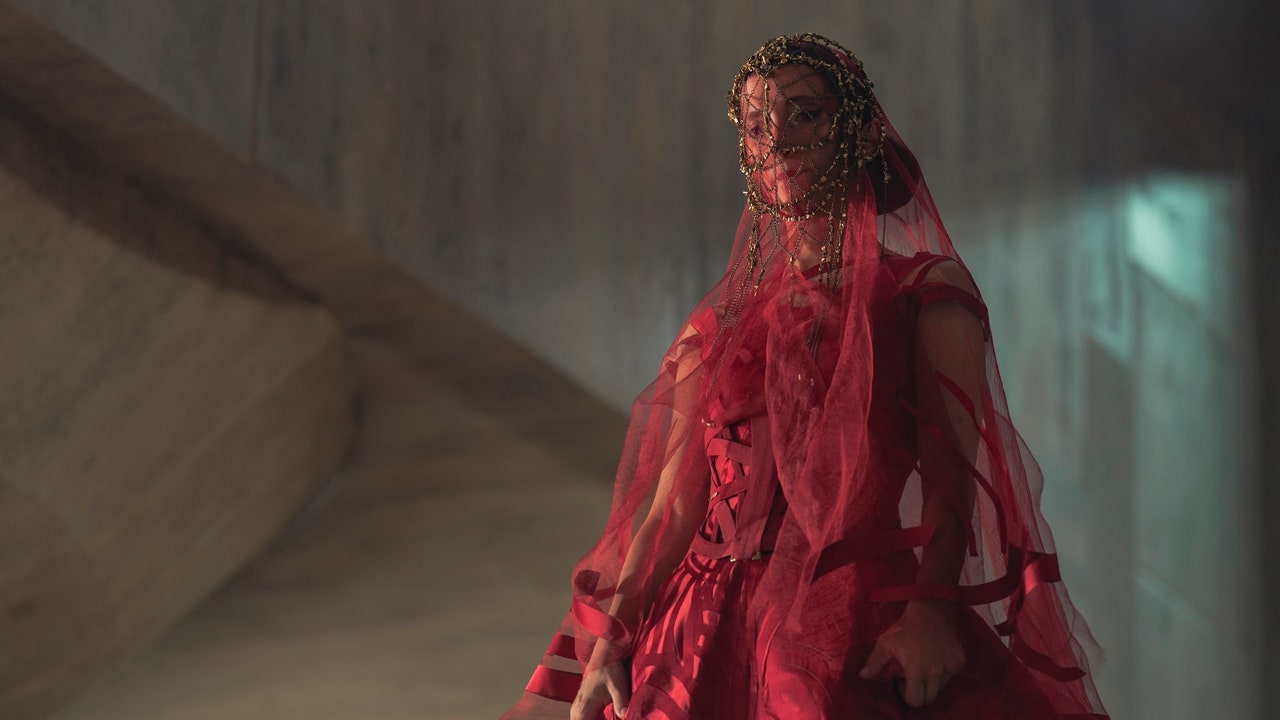
HBO’s House of the Dragon is a prequel set some 200 years before the events of the global smash-hit series Game of Thrones. That two-century distance is just far enough to leave plenty of room for new stores, while still tethering it to the lore we know and love. (Or the lore some of us love, anyway.)
But what does one do with a 10,000-year gap? That is the tricky proposition of Dune: Prophecy, a new HBO series (premiering November 17) that takes place long, long before the events of Denis Villeneuve’s lauded pair of Dune films. All are based on the work of novelist Frank Herbert or, in Prophecy’s case, Herbert’s son, so there is at least something binding them together. But Prophecy, developed by Diane Ademu-John and Alison Schapker (who serves as showrunner), is otherwise entirely remote from the films, due to that boggling gap of time. Sure, some of Prophecy’s characters can see the future, but nobody’s imagining Timothée Chalamet riding a worm quite yet.
Or maybe they are. It’s hard to tell from Prophecy’s murky mythology. The show is mostly centered on the organization of women who will eventually brand themselves the Bene Gesserit, a powerful cabal of seers and manipulators who engineer the fate of the universe, driven by both ancient grudge and (I think) high-minded principle. They are neither heroes nor villains, a moral ambiguity that Prophecy offers up as anti-hero fascination but has trouble actually selling.
Emily Watson, a great actor poorly served in recent years, plays Valya Harkonnen, the formidable leader of the proto-Gesserit who is trying desperately to grab the reins of fate lest she and her sisterhood be trampled underfoot by the men who greedily rule the cosmos. In addition to her more secretive duties, she is something like the headmistress of Bene Gesserit University, a convent of sorts where young women of both noble and low birth train in the mystical ways of the order. Thus some young blood is in the mix, all the better for HBO to introduce the sort of sexy intrigue that helped sustain Game of Thrones.
Soon to start at the academy is Ynez (Sarah-Sofie Boussnina), a headstrong daughter of the space emperor (Mark Strong) who is betrothed to marry an actual child. (It’s a marriage of political expediency; the boy’s father makes warships that Ynez’s father needs to maintain control of the desert planet Arrakis, where the Dune-iverse’s all-important spice is mined.) It will be a while until he can perform his husbandly duties, so Ynez has some gap years to look forward to, during which she plans to get wise in the ways of the Force—I mean, uh, the stuff that Valya and her sister, Tula (Olivia Williams), and their friends know how to do. Ynez has a love interest in her father’s master of arms, a brooding hunk called Keiran Atreides (Chris Mason), who maybe has an agenda of his own.
You may recognize the names Harkkonen and Atreides from the Dune films, the former as the black-and-white villains of the tale, the latter as something like the good guys. (Though Chalamet’s character, Paul, also seems headed nowhere good.) Prophecy shakes up that power dynamic, but nonetheless hopes that viewers will feel some loyalty to these known clans. Achieving this would certainly be easier if we were watching Paul’s great-granddad skulk about moodily lit planets. But when there’s a remove of countless generations, it’s hard to feel that shiver of connectivity.




